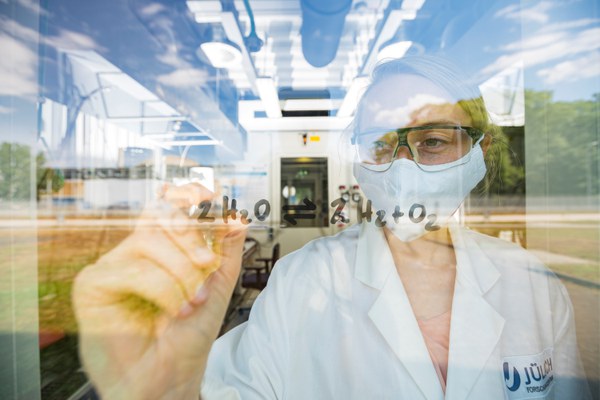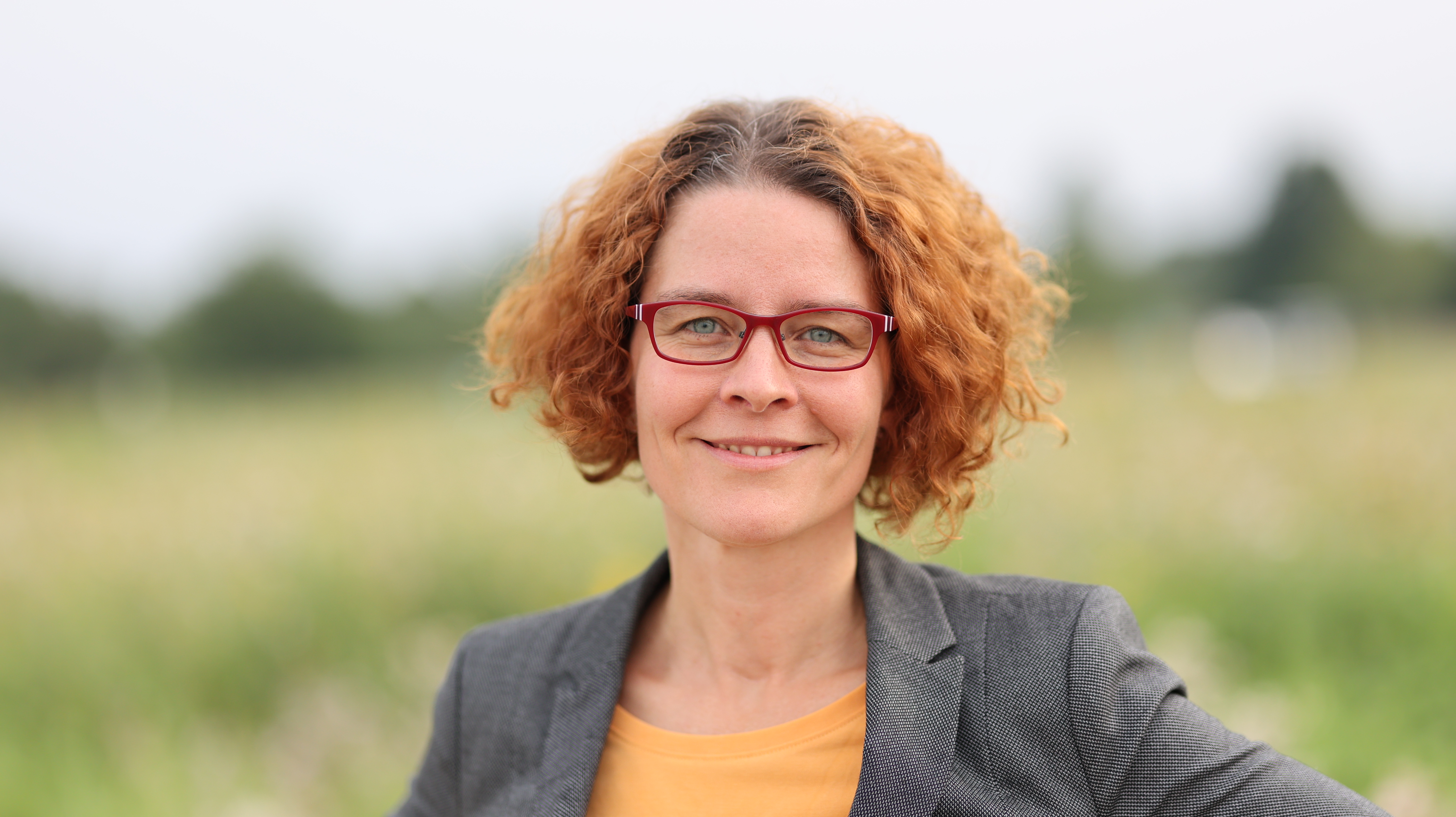The Accelerator
More efficient, faster, and sustainable: catalysis is Regina Palkovits’ passion as well as being an important aspect of "catalaix", a project being provided with € 106 million in funding. But accelerating processes is also a crucial part of the chemist’s life.
€ 106 million for "catalaix" (see infobox) – that’s an incredibly high sum. How did you react to this commitment?
It definitely took us a while to fully grasp the extent of the funding. It started on a very small scale – with a call for tenders and ten pages detailing our vision in condensed form. A lot of very good scientists threw their hat into the ring; that we won in the end was a surprise in itself.
In your opinion, what tipped the scales in your favour?
We were able to showcase our strengths in the final round. This includes a locational strength of Jülich that I aim to build upon: moving quickly from a creative new idea to experimental design and subsequently to a resilient application. This is more difficult in the university sector.
What is "catalaix" about?
We want to create the conditions for recycling plastic waste. With the help of catalysis – the technology that influences the speed of chemical reactions – plastics will be broken down into molecular building blocks that can then be fed into various value chains and material cycles.
A project of the century
To mark its 100th anniversary in 2023, the Swiss Werner Siemens Foundation (WSS) launched an unconventional ideas competition for a "project of the century", for which the WSS would provide 100 million Swiss francs in funding over a ten-year period. A total of 123 teams from Germany, Austria, and Switzerland submitted their ideas. The 17-strong team led by Prof. Regina Palkovits and her colleague Prof. Jürgen Klankermayer from RWTH Aachen University ultimately won out. Their project "catalaix" aims to recycle plastic waste. Among those involved from Jülich are Prof. Peter Wasserscheid from the Institute for a Sustainable Hydrogen Economy (INW) and Prof. Ulrich Schurr from the Institute of Bio- and Geosciences (IBG-2).
You are receiving a lot of money for this project. Does that also come with a lot of pressure?
Pressure is often associated with the belief that you are making the wrong decisions. But if you weigh up all the arguments and your own expertise to the best of your knowledge and belief beforehand, then it is not a problem to take on responsibility. Of course, it might be the case that something doesn’t work. But even then, we are still learning something. I’m simply not afraid that nothing will come of it all.
This sense of confidence that you have – has it helped you in your choice of field? Women are still underrepresented in chemical engineering.
Well, no one ever told me that science and technology are not for girls. And that was good. My favourite subjects were always maths and science. I went to a secondary school for girls – nobody there told me that boys are the better scientists. And I was lucky enough to always find fantastic mentors who encouraged me to go my own way.
Women mentors too?
Actually, I didn’t have a female role model for many years. There were very, very few women in engineering. Today, women make up two thirds of my team, without me having done anything explicitly to achieve this. Clearly, a lot has happened in the past 20 years.
What advice would you give to young women scientists who want to pursue a career in science today?
I believe that women with the qualities usually mentioned as strengths have an ideal starting position – in other words, very good communication skills, empathy paired with expertise in their field, and good self-confidence. They just have to recognize this and demand space. And self-reflection is important. But women are also very good at this.
And how do you see your role in promoting early-career scientists?
I really enjoy helping young people prepare for a career, getting them "on track". As mentors, we should be aware that – if we do it right – we are a huge accelerator and we set the course for the next 20 years or more.
"As mentors, we should be aware that – if we do it right – we are a huge accelerator and we set the course for the next 20 years or more."
Regina Palkovits
And now a question that is unfortunately still rarely asked of men: You have two children and can reflect on a successful career. How did you manage to balance everything?
With a great man (laughs). He took parental leave and brought stability to my working life. The university environment also offers a lot of flexibility – if you demand it. I used to take my children to meetings in a Maxi Cosi car seat or pram. There was always someone willing to walk up and down the corridor with them. Or their grandmother accompanied me to conferences and looked after the children. But it’s true, without this support, it would have been difficult.
You have received many accolades – including being named one of the 100 women of tomorrow. What else do you want to achieve in the future?
The same thing as 20 years ago: I don’t need a Nobel Prize, but I want to put things into practice and have an effect – and I see great opportunities here, not only in "catalaix", but particularly through the combination of my role as a director at Jülich and holding a chair at RWTH Aachen University.
Personal background
Prof. Regina Palkovits has been a director at the Institute for a Sustainable Hydrogen Economy (INW) at Forschungszentrum Jülich since 1 October 2023. She is head of the institute division Catalytic Materials for Chemical Hydrogen Storage (INW-2). The 43-year-old is also Chair of Heterogeneous Catalysis and Technical Chemistry at the Institute of Technical and Macromolecular Chemistry, RWTH Aachen University. As a researcher who works at the boundaries of various disciplines, she is particularly passionate about making science as comprehensible as possible – both within science and for the public. She received the popular science award back in 2008.
The questions were asked by Katja Lüers | images: Foto: WSS/Felix Wey (Lab-photos)
Contact
- Institute for a Sustainable Hydrogen Economy (INW)










